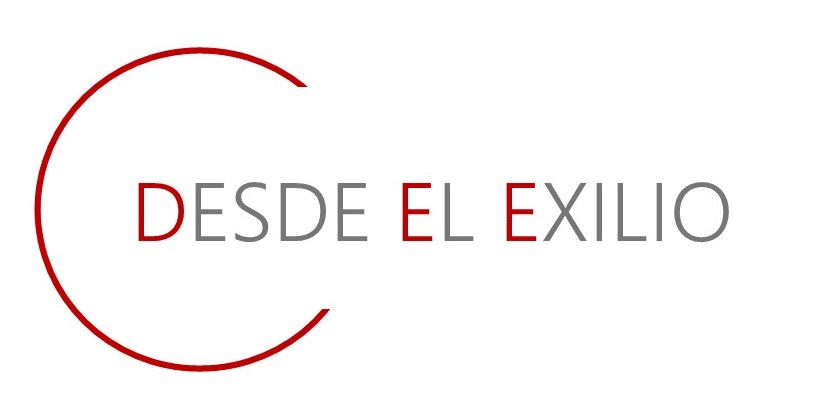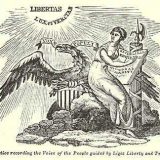Sobre los problemas de los sitemas de representación proporcional. No habrá nadie en España que lea este artículo y se aplique la copla?
Germany’s Bad Example for Iraq
Why proportional representation leads to gridlock.BY MICHAEL GREVE
Monday, October 3, 2005 12:01 a.m. EDTBerlin is far from Baghdad, and the Germans at least want to keep it that way. But for all the obvious differences, Germany’s inconclusive election results and the impending constitutional referendum in Iraq point to some identical obstacles to effective and constitutional government.
These obstacles are proportional representation and «cooperative federalism.» As it happens, well-meaning U.N. officials, NGOs and U.S. advisers have been urging these constitutional arrangements upon numerous fledgling democracies, including Iraq. That may not be good advice.
Proportional representation–PR–is said to be more democratic, inclusive and respectful of minorities than British-American winner-take-all, first-past-the-post elections. Unfortunately, it does nothing to foster clear majorities capable of effective government.
Germany’s system of almost pure PR has consistently produced coalition governments and now, for the first time, a situation in which no party constellation can produce a government with a coherent program for much-needed reforms. Prime Minister Margaret Thatcher’s reform of Britain’s sclerotic economy wouldn’t have been possible with PR and cooperative federalism; nor could one imagine Prime Minister Junichiro Koizumi accomplishing anything similar in Japan.
The more subtle but ultimately more insidious problem is that PR–unless balanced by plebiscitary institutions such as a directly elected, powerful executive–tends to be constitutionally unstable. Instead of institutional checks and balances, PR constitutions resemble temporary peace pacts among contending interests, classes or warlords. The structure is only as stable as the underlying constellation of forces; or it is stabilized by nonpolitical means.
That’s the function of Germany’s cherished social welfare state: reducing political competition to promises of transfer payments, and compressing the range and intensity of social and political conflict. That sort of stability translates into economic malaise, political indecision and fears of much worse down the road.Germany’s «cooperative» federalism reflects the same disposition and tendencies. To ensure fairness and «solidarity» between levels of government and among the Länder (states), Germany mandates comprehensive revenue-sharing and complex fiscal transfers, from the federal to state and local governments and from rich to poor states.
This fiscal constitution creates holdouts and gridlock. Germany cannot be effectively governed without the active support of the Länderfürsten, as state prime ministers are fittingly known–whose fortunes, in turn, depend on federal funding formulas. Worse, economically competitive states are punished for success, as a good chunk of their revenues will be transferred to less prosperous brothers.
Like PR, moreover, cooperative federalism entrenches the political instabilities it is meant to contain. Germany’s fiscal constitution has been subject to incessant litigation and repeated amendments. The principal means of ensuring a modicum of stability is to raise taxes, to make all participants in the intergovernmental revenue wrangling better off. But stability turns into sclerosis when the economy sags under the accumulated burdens.Fast forward, or rather backward, to Iraq, whose National Assembly was elected, under U.N. and American pressure, on a PR basis. A just-proposed election law envisions a slightly modified system of party lists and PR. (At least every third delegate must be a woman.) The proposed constitution puts a hydra-headed executive at the mercy of the parliament.
While the federalism arrangements are still in flux, the proposed document promises a thoroughly cooperative regime, with the «fair distribution» of federal offices (including foreign missions); of international aid, grants, and loans; of oil and gas revenues; and of a «fair share» of other federal revenues. In conflicts between regional and federal law, regional law shall prevail–thus providing potent incentives to extort fiscal transfers. This construct is at best a state of (hopefully) suspended civil war. A constitution, it is not.
To appreciate the difference, consider the U. S. Constitution. Without proportional representation, we have a stable two-party system. We have an independently elected executive, no «fiscal constitution» and (aside from the Nixon administration’s ill-fated experiment) no general revenue sharing. Instead, we have independent taxing authority and competition, subject to only minor constitutional provisos. The states do not owe each other much beyond keeping each other’s borders inviolate and their own borders open. Within those ground rules, they may and must compete.
In short, the U.S. Constitution is not a peace pact among interests or an attempt to entrench a social balance. It establishes rival institutions with the means and the motives to resist one another, in the hope that counteracting ambitions will keep the outcomes within bounds. The system, to be sure, produces lots of friction and wheel-spinning–but it is also capable of energy and decision when needed. We do not owe the stability of our political institutions to economic forces or temporary social alignments. American politics is constitutionally stable.
Cooperative federalism and transfer payments may sometimes be the only way to buy (literally) a temporary respite from regional or ethnic separatism. Even so, the U.N.-U.S. push for proportional representation and cooperative federalism in Iraq looks more like a reflex than a carefully considered option. And it only postpones the hard work of building a stable constitutional order–one not subject to political drift, indecision, gridlock and sclerosis.Energetic government and constitutional stability may seem in tension, if not conflict. In truth, they go together. For many still-young republics in Eastern Europe and elsewhere, they make a far more attractive package than the German model of consensus, cooperation and paralysis.
Mr. Greve is director of the Federalism Project at the American Enterprise Institute.





Pues ya hay muchas voces que critican nuestro actual sistema electoral. Quién sabe, a lo mejor si salimos de ésta, todavía queda esperanza para arreglar las cosas.